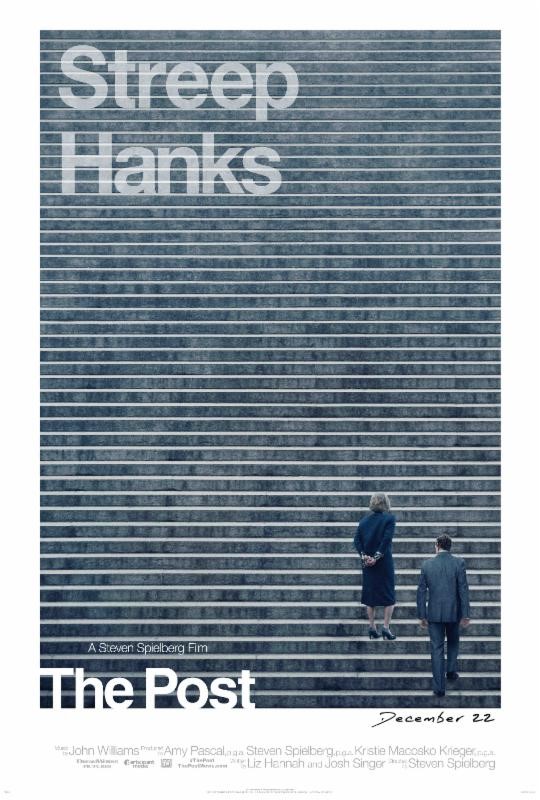“The Post” gives insight on the world of Journalism
“The Post” gives a cinematic retelling of a cover-up that spans over four presidents and pushed the first female newspaper publisher and a hard-driving editor to join in a battle between government and the press.
The movie opens with military analyst Daniel Ellsberg (Matthew Rhys) as he documents the U.S. military in the region for Secretary of Defense Robert McNamara (Bruce Greenwood). On the flight back to the United States, McNamara expresses his view that the Vietnam war is hopeless. Ellsberg many years later painstakingly copies the historic Pentagon Papers and sends them to The New York Times reporters. The Times publishes an article containing excerpts from the papers.
Katharine Graham (Meryl Streep) had recently taken over The Washington Post after her husband’s suicide. At the time, she was the only female newspaper publisher. She struggles with keeping the newspaper going. Ben Bradlee (Tom Hanks), the editor for The Post, notices that The Times reporter Neil Sheehan hasn’t put out a story in months and knows he has something big coming. He sends a runner to find out what his story is.
From that point forward, Bradlee and The Post play a game of catch up to try and compete with The Times. The Post’s big break comes when a lady from the anti-war movement gives a box to one of the writers that contains some of the Pentagon papers.
Watching the editor and reporters reactions to receiving the papers could be described as pure shock. The fact that they had been waiting for a breakthrough and then of all people a complete stranger had a copy of some of the pages and willingly gave them to a newspaper was cool to see play out.
When The New York Times is forced to stop publishing anything that has to do with the Pentagon papers by the U.S. government, it gives The Post a chance to find a source that has the whole set of papers. They find that source in the form of Daniel Ellsberg.
When Bradlee gets the papers, he immediately gets his team together to write an article before midnight. They have to search through 4000 papers that don’t have page numbers and try to get them in a logical order.
The way the scene plays out with writers scattered around Bradlee’s living room, surrounded by papers and typewriters shows the side of a newspaper company you usually don’t see.
The big question that hangs in the air is do we publish? Lawyers get involved and the whole thing turns into a mess. Everyone’s frustrated. “What happens if we don’t publish? We will lose! The country will lose!” said Bradlee on the phone with Graham.
Some of the most memorable scenes happen at the end of the movie. From watching with bated breath after The Post goes out to the world and waiting for the results of The Times trial, the movie is sure to bring out an array of emotions while watching. The cast was amazing and the writing was perfect. This was by far one of Streep’s best movies. While it wasn’t Steven Spielberg’s best movie, it really shows the depth of his direction. The only negative part of the movie is that they keep the fact that Ellsberg did commit treason by copying and distributing The Pentagon papers.
Overall “The Post” was a great movie.

Hi! I'm Cennedi, pronounced Kennedy, I'm a very energetic person. I love reading and writing. I want to go to West Virginia University to get a degree...










